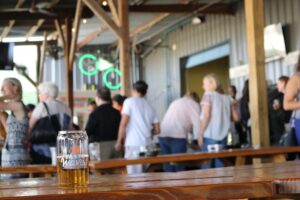Drug and Alcohol Rehab in Wallsend
Learn about drug and alcohol rehab and detox in London. The rehab clinic offers a robust admissions process, supervised detox , and evidence-based treatments.
Government statistics on Wallsend have suggested that over 4,000 men and women are frequent drinkers. Over 2,400 of these people are frequent male drinkers, and over 1,600 women class themselves as ‘habitual drinkers’.
Over 3,800 people from Wallsend are currently drinking alcohol in excess, where statistics differ according to age cohort.
According to a survey:
- over 830 schoolchildren in Wallsend drank alcohol in the past five days.
- over 250 11-15-year-olds drink on a weekly basis; of these, many think it is acceptable to drink alcohol weekly.
- For people aged 16-24, around 556 men drink in excess of double the recommended limit, and around 500 people are regularly exceeding the guidelines. In addition, almost 1,400 people in this age bracket drink heavily more than once a week. [1a]
With over 7,000 elderly pensioners, over 800 men (aged 65 or older) drink alcohol regularly. Of the same age, around 500 women also consume alcohol very often.
Over 1,200 people from Wallsend over 65 years old drink alcohol at least 5 out of 7 days of the week – more than any other age cohort.
This led to the finding that over 200 people from Wallsend of this age are likely to be addicted to alcohol or abusing it in some form.
To begin your addiciton recovery journey at a rehab in Wallsend today, call our team on 0800 140 4690
Defining alcohol addiction for addiction treatment in Wallsend

From these statistics in Wallsend, it is important that we know what it looks like to be addicted to alcohol and what the symptoms are.
Once you have noticed these trends in yourself or a loved one, you can then receive the help you need in Wallsend.
Our distant relatives battled with the stigma attached to addiction, which is controversial in today’s medical opinion. Then, addiction was deemed to be a sin, possibly caused by the devil or another God.
This view concerns a moral failing on the part of the user, but this was rejected by the psychologists who created the disease model of addiction. [1]
Addiction is not considered a ‘choice’ or ‘moral failing’ on behalf of the addiction sufferer – rehab is about treating the disease of addiction.
Much like diseases such as cancer, addiction is a brain disorder. The disease can be treated and managed in conjunction with how bad the addiction has become.
This medical model is the new ‘gold’ standard’, stating different causes that parallel diseases:
- Biological
- Genetic
- Environmental
You can read more about the disease of addiction here.
To learn more about this approach to addiction and how it can inform effective addiction treatment in Wallsend, call our team on 0800 140 4690

This has been linked to other sources, such as trauma (largely remaining unaddressed), abuse, family history, early exposure, high-risk environment and mental illness.
However, the first two models of the DSM (diagnostic and statistical manual of mental disorders) wrongly categorised addiction.
It placed addiction alongside other morally disapproved conditions, stigmatising the very nature of addiction.
- The DMS III espoused a descriptive diagnosis, requiring tolerance and withdrawal symptoms.
- The DSM IV emphasised addiction’s biological nature
- DSM V stated that all drugs and alcohol taken in excess of guidelines could rewire the brain’s reward system, defining substance dependency and addiction in the following manner as either substance dependency or substance addiction. [2]
Substance Dependency:
Substance dependency is a pattern of substance use leading to clinically significant impairment or distress, as manifested by three (or more) of the following, occurring any time in a 12-month period:
- Increased tolerance and used more frequently than normal
- Withdrawals from the substance
- The user takes the drugs to ease withdrawal symptoms
- Unsuccessful desire to cut down or stop using
- Reduction in social and recreational activities
If you or a loved one in Wallsend continues to use, despite knowing they have a problem, they may be dependent on it.
Substance Abuse:
Substance abuse is a pattern of substance use leading to clinically significant impairment or distress, as manifested by one (or more) of the following, occurring within a 12-month period:
- Repeated absence from roles or activities
- Using a substance in dangerous situations
- The trouble with the law over substances
This use and dependency can develop into addiction. The disease model of addiction lays out a tripod cycle – the early signs of drug and alcohol addiction:
The Disease Model of Addiction:
- Binging and intoxication, mostly regarding the rewarding and pleasurable effects on the brain.
- Experiencing withdrawals is linked to the extended amygdala part of the brain. Commonly, people experience increased stress, anxiety, and shaking.
- Anticipation – seeking the substance once again following withdrawals or in order to get over some withdrawal symptoms.
For more guidance on alcohol diagnosis in preperation for rehab in Wallsend, call us on 0800 140 4690
The American Society of Addiction Medicine

The American Society of Addiction Medicine (ASAM) established addiction expertise and knowledge originating from work in the 1950s.
ASAMs aim is to be able to provide a singular applicable practice to all medicine regarding addiction, in keeping with contemporary information on neuroscience [3].
They held there were six dimensions, all part of their criteria to assess those with SUDs (substance use disorders).
This is a biopsychosocial approach, highlighting the different areas where an individual in Wallsend will require tailored treatment – enabling personalised treatment plans.
- Dimension 1 – Acute intoxication and/or withdrawal: is the patient particularly vulnerable to the worst side effects of withdrawal symptoms?
- Dimension 2 – Biomedical conditions and complications: has the patient been previously diagnosed with a mental illness, condition or disease that could interfere with treatment?
- Dimension 3 – Emotional, behavioural, or cognitive conditions and complications: how is the patient’s emotional state?
- Dimension 4 – Readiness to change: does the patient have sufficient and adequate motivation to engage with the treatment and are ready to better themselves?
- Dimension 5 – Relapse, continued use, or continued problem potential: is the patient vulnerable to continued substance abuse?
- Dimension 6 – Recovery/living environment: could the people or places that the patient engages with lead to a relapse or prevent recovery?
These dimensions have a risk rating of 0 (low risk) to 4 (high risk). The higher the risk rating given by the assessor, the more consideration and effort are applied to that dimension than the others.
If you believe you may need access to a drug and alcohol rehab in Wallsend, call us on 0800 140 4690
Testing for alcohol addiction before rehab in Wallsend

If you believe you or a loved one from Wallsend mirror these symptoms or behaviours, you may be suffering from addiction. The easiest and quickest way to find out is an online questionnaire.
The CAGE Questionnaire is the most common take-home questionnaire. CAGE identifies negative alcohol use signs, where the questions have also been tailored to harmful signs of drug use. [4]
- Have you ever felt you should CUT down your drinking? YES/NO
- Have people ever ANNOYED you by critiquing your drinking? YES/NO
- Have you ever felt bad or GUILTY about your drinking? YES/NO
- Have you ever had a drink first thing in the morning to steady nerves or to get rid of a hangover? YES/NO
CAGE Questions Adapted to Include Drug Use (CAGE-AID)
- Have you ever felt you should cut down on your drinking or drug use? YES/NO
- Have people annoyed you by criticising your drinking or drug use? YES/NO
- Have you felt bad or guilty about your drinking or drug use? YES/NO
- Have you ever drank or used drugs first thing in the morning to steady your nerves or get rid of a hangover (eye-opener)? YES/NO
These questions are scored on a severity scale. A YES answer will give you a point of 1, whereas a NO answer will award you a 0.
If you find yourself with a score over two, this may lead to a finding of clinical significance – you ought to consider consulting a doctor in Wallsend.
If you’re looking for alcohol rehabilitation in Wallsend, reach out to our team today on 0800 140 4690
The AUDIT Questionaire

In addition, the AUDIT questionnaire is an alcohol screening test – a more modern version and developed questionnaire than CAGE – although both hold high success rates.
Audit Questionnaire (alcohol use disorders identification test): [5]
- How often have you had six or more units if you are female or eight or more if you are male on a single occasion in the last year?
- How often have you failed to do what was normally expected from you during the last year because of your drinking?
- How often during the last year have you been unable to remember what happened the night before because you had been drinking?
- Has a relative, friend, doctor or other health worker been concerned about your drinking or suggested that you cut down?
- How often do you have a drink containing alcohol?
- How many units of alcohol do you drink on a typical day when you are drinking?
- How often during the last year have you found that you could not stop drinking once you had started?
- How often during the last year have you needed an alcoholic drink in the morning to get going after a heavy drinking session?
- How often have you felt guilt or remorse after drinking during the last year?
- Have you or somebody else been injured as a result of your drinking?
To begin alcohol addiction treatment in Wallsend as soon as possible, call us on 0800 140 4690
Hosting an intervention in preparation for addiction treatment in Wallsend

Before you start to think about rehabilitation for drug or alcohol abuse in Wallsend, we all must consider intervention.
Intervention is the first step towards sobriety and getting the help you need. It is designed to motivate and encourage those with addictive behaviours.
It is challenging to know when and how you can do this. There are many different types of intervention therapies available in Wallsend, ranging from personal heart-to-heart to professional psychologists.
However, this isn’t often clear-cut – those struggling, to whatever extent, normally start off by ignoring their addiction, claiming they don’t have a problem.
This can lead to family bonds breaking, lying, stealing, and overall negative impact. Sometimes joining with others and being totally prepared for formal intervention is what it takes.
Intervention highlights the user’s denial, recognising addiction’s negative impact on all involved.
Intervention then presents the opportunity for users to correct their behaviour and, therefore, better themselves for a brighter future.
This carefully planned practice involves people gathering in Wallsend to discuss the consequences of addiction in order to:
- Provide examples of destructive behaviours
- Discuss the general and specific impact of addiction
- Offer an arranged plan with realistic and clear goals
- Offer guidance
- Discuss options when people refuse treatment
To get more guidance on holding an intervention in order to convince a loved one to attend rehab in Wallsend, call us today on 0800 140 4690
How to organise an effective intervention in Wallsend

An intervention usually involves a crafted plan by a family member or concerned others consulting a professional, counsellor or psychologist in Wallsend.
This will help you organise an effective intervention; it might also be important to have professionals present if there are high emotions with potential danger.
It is important to know the extent of the issue, such as the range of addiction you will be working with. You also should be aware of the treatment programs available to you in Wallsend as a positive solution.
Knowing the person and anticipating their reaction will be key to enrolling them into a tailored and specific treatment program in Wallsend.
Forming the intervention team involves those who will participate in the intervention, physically or mentally. Having non-family members present ensures that the conversation doesn’t go off-topic and remains on the issue.
It is then critical that you follow up on the meeting to prevent relapse and maintain motivation to attend rehab in Wallsend.
A popular type of intervention is the CRAFT approach, community reinforcement and family training. This is designed specifically for family members, learning how to support and interact with loved ones struggling with addiction. [6]
Old intervention styles are not used: instead, CRAFT teaches you a range of strategies that are built on a positive, motivational foundation:
- Communicate with positivity
- Positively reinforce anti-use
- Allow the negative impact of using to affect them
- Develop awareness of what it means to move foreword
- Mend family bonds
The focus remains on helping someone re-develop and change their life’s direction. This is a behavioural approach aimed at transforming everyone’s behaviour.
CRAFT is deemed to be around 75% effective at getting people into treatment, three times more likely than other standard interventions in Wallsend.
If holding an intervention sounds like the right choice to help your loved one access rehab in Wallsend, call us on 0800 140 4690
Rehabilitation: inpatient vs outpatient rehab in Wallsend

Once you have completed the intervention, it is important you know about the various drug and alcohol rehabs in Wallsend in order to pick the right one.
Rehabilitation is a program designed for drug and alcohol addiction. These programs are all different, tailored to people’s needs in order for them to lead a normal life again.
The main two types of rehab in Wallsend are inpatient and outpatient. This is referring to whether you live in the rehab clinic full time (inpatient) or attend rehab from the comfort of your own home (outpatient).
Despite living at home, you will attend your chosen rehab in Wallsend for therapy, medication and support.
Inpatient centres are referred to as private clinics and tend to be more expensive and not offered on the NHS. These inpatient clinics are sufficient to look after you 24/7, catering for your every need.
They can be affordable, but you can set up a payment plan if they are too expensive. Standard care in Wallsend can cost from £14,000 to around £80,000 a month for a deluxe and luxury stay. These costs cover:
- Rent
- Utilities
- Medication
- Staff training
- Tailored treatment plans
The NHS doesn’t tend to cover or offer inpatient rehab in Wallsend, but they will likely refer you to an outpatient centre. [7]
For outpatient centres in Wallsend, you or your loved one will attend group therapies, and you are required to pay for the prescriptions yourself (around £9 per prescription).
You will have to attend the centre in Wallsend to take the medication, as patients can abuse it.
This medication is usually called pharmacological intervention, primarily used for withdrawal side effects. Addiction to heroin and alcohol, for example, requires a detox, as they are physically addictive.
Substances such as cannabis and cocaine won’t require a detox, as they are not physically addictive.
This is a perfect example of how there are different treatments in Wallsend for different addictions, all tailored toward different types of substance abuse.
Librium is primarily used for alcohol addiction, preventing the initial wave of withdrawals, such as anxiety.
This pharmacological intervention rebalances the brain chemicals, where the reward system of the user’s brain needs to be rewired.
This medication will be reduced over a period of 10 days, as Librium can be addictive itself. This detox should be carried out for a minimum of 7 days, but a full 28 days is suggested to fully focus on recovery.
For advice about choosing between inpatient and outpatient rehab in Wallsend, give our team a call on 0800 140 4690.
Therapy and treatments at drug and alcohol rehab in Wallsend
Professionally supported drug and alcohol rehab in Wallsend is one of the best ways to recover from addiction, largely due to the treatments it can offer.
A range of drug and alcohol therapies are available to those struggling with addiction in Wallsend.
Whilst the specific nature of those treatments will differ at each rehab in Wallsend, some of the most common include:
Cognitive Behavioural Therapy

Cognitive Behavioural Therapy is commonly used for addiction.
CBT aims to understand the link between negative thought patterns and your behaviours.
The National Institute of Drug Abuse (NIDA) funded research on CBT and other specific techniques for using cocaine. [8]
CBT, in this case, helps people to:
- Recognise situations where they are most likely to use
- Avoid these situations where appropriate
- Cope with their problem behaviours
- Understand their desire to use through understanding the thought process
The vast majority of drug and alcohol rehabs in Wallsend will offer CBT as an essential part of the recovery process.
Dialectical Behavioural Therapy

DBT is based on CBT. DBT is adapted specifically towards psychological issues and emotions, highlighting how the way we feel is active in our behaviours. This includes those users who are suicidal.
DBT involves elements designed to promote abstinence from drugs and alcohol, reducing the risk of relapse. [9] Experts have agreed that abstinence is always the safer and more effective route to addiction recovery.
The ultimate goal for DBT is to rebuild the life of the user in Wallsend, one that they deem worth living.
During DBT, the patients learn to envisage and seek goals unrelated to their history or uncontrolled behaviour. Instead, the emphasis lies in a broader goal, change and acceptance.
This is why it is called ‘dialectic’, referring to two opposites that can simultaneously be true.
DBT can be offered by most rehabs in Wallsend.
Holistic Therapy

Holistic therapy is another popular treatment used in rehabs across Wallsend, one that addresses both the mind and the body. This addresses addiction as a whole rather than focusing on specific aspects such as emotion or behaviour.
Holistic therapy rebalances bodily energy to reach the pinnacle of self-care. [10]
This therapy has been used for centuries, maintaining health and well-being and supporting physical, mental, emotional and spiritual health.
A few examples of holistic therapy:
- Reflexology
- Massage Therapy
- Acupuncture
- Equine therapy
- Music therapy
- Art therapy
- Adventure therapy
Although the majority of rehabs in Wallsend will offer some form of holistic therapy, this will differ depending on their resources, expertise and location.
Brief Interventions
Brief intervention is a broad term that describes any kind of short-term intervention and/or interruption of a person’s addiction or other problematic behaviour.
This might be something as simple as providing them with a helpline number or putting together a plan to get through the next days or weeks in the best frame of mind possible.
Fighting addiction is a lifelong challenge, but is important to focus on maintaining your well-being in the short term as well. This is what brief interventions are designed for.
Most rehabs in Wallsend will use brief interventions periodically throughout recovery to ensure that treatment remains effective and on-track.
Motivational Interviewing

Motivational interviewing (MI) is a specialist counselling technique which has the aim of resolving a person’s ambivalence or apathy about their future.
Going through addiction and recovery can be a very draining process, and it can often leave a person in ‘survival mode’, focusing only on their short-term needs.
MI as a technique is slightly different in that encourages the person to find their own sources of long-term inspiration and motivation, rather than prescribing it to them.
Motivational interviewing is a core part of many people’s addiction treatment in Wallsend.
Group Therapy
When going through the transformative experience of rehab in Wallsend, it can be very helpful to feel part of a small community. This is why group therapy meetings take up a large part of the schedule at rehab.
These meetings provide a safe and open forum for people to share their thoughts and feelings, as well as learn from others like them.
It is common for group therapy meetings to be chaired by a member of the on-site mental health team, or in some cases a senior group member.
Group therapy will be experienced by virtually everyone undergoing addiction treatment in Wallsend.
Individual Therapy
Although group therapy is a valuable part of the rehab experience, there are some things which are best discussed with a professional on a one-to-one basis.
Rehab gives you access to the highest standard of mental health care, meaning that you can work through your issues with the help and perspective of an experienced professional.
One-to-one therapy is a staple of every drug and alcohol rehab in Wallsend.
Family Therapy

One of the most difficult things about recovery is trying to repair relationships with friends and family that have been damaged by addiction.
This is why family therapy is one of the treatments that is often offered at rehab – it gives an opportunity to try and mend those relationships together as a group.
Family therapy sessions usually involve members of your family coming to the clinic and taking part in sessions with you in person. Obviously, this is subject to potential COVID-19 guidelines.
Familial relationships are often complicated and fraught, so we understand if you do not want to take part in any kind of therapy. It will only happen if you consent to it.
Most drug and alcohol rehabs in Wallsend are able to host family therapy sessions when it is appropriate.
Co-Dependency Treatment

Being in addiction can very easily cause a person to lose perspective on their life, including their interpersonal relationships and how healthy or unhealthy they are.
Addiction can cause the person to develop toxic and/or co-dependent relationships as a means of survival. It can often take the improved perspective of sobriety and distance to see these relationships for what they are.
At rehab, you will have professional help to assess your various relationships and identify those which may be harmful to your well-being.
Many addiction treatment services in Wallsend have the necessary expertise to facilitate co-dependency treatment.
Twelve-Step Facilitation Therapy
As mentioned in the section about AA and NA, these organisations centre their approach around a 12-step model.
If you are committed to the 12-step programme, please be assured that you can have this incorporated into your care and treatment plan at rehab.
Some rehab clinics in Wallsend value the 12-step approach more than others, and we can help you to identify which would be most suitable for your needs.
To learn more about various therapies and other addiction treatment in Wallsend, give our team a call on 0800 140 4690
The 12-Step Programme

12-step facilitation therapy in Wallsend is one of the most well-known and used therapies for drugs and alcohol. Alcoholics Anonymous (AA) is a clear example of a 12-step facilitation therapy.
The driving success of such group therapy is driven by the fact that previous alcoholics are the best at helping other uncontrolled drinkers. [11]
This is done by following 12-steps towards sobriety, all whilst holding group meetings to share stories and experiences. This mutual support is critical for relapse prevention:
- Admit you were powerless over alcohol – that our lives had become unmanageable.
- You decide to believe in a higher power greater than ourselves could restore us to sanity.
- You decide to turn our will and lives over to the higher power (does not have to be religious).
- You make a searching and fearless moral inventory of ourselves.
- You admit to your chosen higher power, to yourself, and to another human being, the exact nature of our wrongs.
- You become entirely ready to have the higher power remove all your shortcomings.
- You ask your higher power to remove our shortcomings.
- You make a list of all people you have harmed and become willing to make amends to them.
- You make direct amends to the people hurt wherever possible, except when to do so would injure them or others.
- You continued to take personal inventory and promptly admitted it when we were wrong.
- Through prayer and meditation, you will seek to improve your conscious contact with your chosen higher power, and divine knowledge of their plan for you.
- Having had a spiritual awakening as the result of these steps, you try to carry what you have learnt with you and direct your life accordingly to support yourself and others suffering from addiction.
Narcotics Anonymous is similar to relapse prevention available in Wallsend, where the members help others and themselves remain drug-free.
These groups are free, and it does not cost to attend. The desire to stop using and a willingness to try and change are all you need to start your route to sobriety. [12]
To access a 12-step addiction treatment programme in Wallsend and beat your addiction for good, call us on 0800 140 4690.
The Importance of Aftercare After Rehab in Wallsend
Aftercare is a critical component of avoiding relapse as it provides a person with ongoing support and aid to deal with life and long-term symptoms. When you enrol in a recovery programme in Wallsend, your treatment isn’t just limited to your stay at one of our centres.
We provide all of our patients with 12 months of free aftercare services.
Aftercare is any treatment a patient receives after leaving inpatient rehab in Wallsend. This can be with the facility that provided the inpatient treatment or an entirely separate program. Aftercare includes but is not limited to support groups, therapy, and continued medical support.
This includes specifically tailored access to resources, self-help tips, and other support schemes to help you avoid relapse and triggers in the outside world. It also allows you access to a helpline that connects to one of our advisors in case of an emergency.
But mainly, aftercare provides you with the confidence and power of knowing that we have your back, even after you leave rehab in Wallsend.
To begin your recovery journey at a rehab in Wallsend today, give our expert team a call on 0800 088 66 86
Contacting Rehab Recovery
For more information on detox and rehab options in Wallsend, contact Rehab Recovery today on 0800 088 66 86. When you contact us, we shall outline a variety of treatment options that are available to you in Wallsend.
This includes both private and statutory addiction treatments in and near to Wallsend.
Whatever your addiction needs may be, we are here to help.
References
[1] JOUR. History of the Concept of Addiction. Nathan, Peter E, Conrad, Mandy, Skinstad, Anne Helene. 2016/03/28. doi: 10.1146/annurev-clinpsy-021815-09354610.1146/annurev-clinpsy-021815-093546. Annual Review of Clinical Psychology (29) 51 VL 1 – 12
[2] Center for Substance Abuse Treatment. Managing Chronic Pain in Adults With or in Recovery From Substance Use Disorders. Rockville (MD): Substance Abuse and Mental Health Services Administration (US); 2012. (Treatment Improvement Protocol (TIP) Series, No. 54.) Exhibit 2-6, DSM-IV-TR Criteria for Substance Abuse and Substance Dependence. Available from: https://www.ncbi.nlm.nih.gov/books/NBK92053/table/ch2.t5/
[3] American Society of Addiction Medicine (2021) ASAM: Quality and Science. Available @ASAM Home Page.
[7] CHRISTOPHER D. PRATER, M.D., KARL E. MILLER, M.D., and ROBERT G. ZYLSTRA, ED.D., L.C.S.W., University of Tennessee College of Medicine, Chattanooga, Tennessee. Am Fam Physician. 1999 Sep 15;60(4):1175-1182.
[9] Dimeff LA, Linehan MM. Dialectical behaviour therapy for substance abusers. Addict Sci Clin Pract. 2008 Jun;4(2):39-47. doi: 10.1151/ascp084239. PMID: 18497717; PMCID: PMC2797106.
[10] https://www.therapy-directory.org.uk/content/what-is-holistic-therapy.html
[11] https://www.alcoholics-anonymous.org.uk/about-aa/the-12-steps-of-aa


